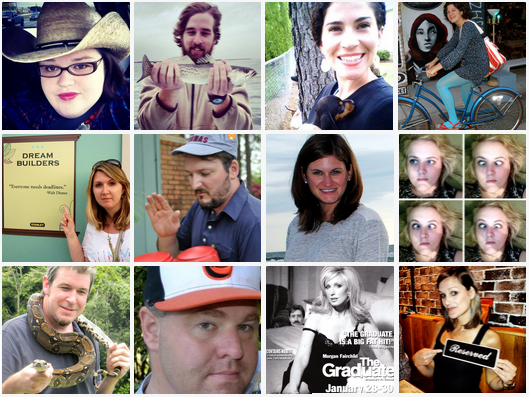World Building Tips [video]
Anyone who has ever tried building a fictional world from scratch has wished they had a road map, a compass, a starting point. This video is exactly that. TedEd videos pair experts with professional animators to create simple, entertaining videos to help you through difficult topics. In this installment, Kate Messner discusses what exactly makes worlds like JK Rowling’s so compelling and provides tips for how to create your own fictional world—one readers will fall into and never want to leave.
Kate Messner is an award-winning author whose books for kids have been New York Times Notable, Junior Library Guild, IndieBound, and Bank Street College of Education Best Books selections. The Brilliant Fall of Gianna Z. was the winner of the 2010 E.B. White Read Aloud Award for Older Readers. Kate also spent fifteen years teaching middle school and earned National Board Certification in 2006. This video was animated by Avi Ofer. ...
7 Times to Write
For many writers, finding time to put pen to paper is the biggest hurdle. Let’s face it, writing doesn’t bring in the big bucks. That means most writers have day jobs, along with life’s other messy necessities. With only twenty-four hours in the day, how do you find time to write at all?
Heather Sellers said, “Becoming a writer means being creative enough to find the time and the place in your life for writing.” It’s tempting to think that we’ll write when we have more time, when our life suddenly pauses—but that will never happen. Being a writer is about fitting writing into our existing schedule, finding ways to work around the madness.
Here are a few times you may not have thought of to get some writing in. ...
Famous Writers’ Day Jobs
It’s a lean time for writers, as arts funding shrinks on all sides, journalists are laid off in droves, broadcasting budgets are slashed, and book publishing remains in a state of seemingly unceasing upheaval.
It often seems as if the age of living by the pen may be brought to a close by an increasingly rapacious approach to human affairs, interested only in hard numbers and bottom lines. Australian writers Frank Moorhouse and Ben Eltham have recently proposed several schemes to give writers a living wage to support their work.
And so it’s timely to reflect on some of the strange, desperate and occasionally dangerous ways in which writers have historically lived, if not always by their pens, then at least on their wits. Here’s twelve ways in which classics of western literature were written.
Stuff Writers Think
The drafting stage is fraught with distracting, terrifying thoughts. Writers navigate mazes of doubts and uncertainty, sure only of the fact that a completed manuscript is waiting somewhere at the finish line. We beat ourselves up, questioning every scene and every sentence. And then there’s the procrastination, followed by a whirlwind writing session after which we collapse onto the couch in a daze.
The drafting process can be rough, but we’re in this together. Here’s some of the stuff writers think while they’re getting their words on paper.
“My inner editor is such a jerk.”
During the drafting phase, we spend a lot of time cursing our inner editor. Here’s how that conversation goes. ...
Blogging Copyright Basics
Blogging is one of the best ways to hone your writing skills while also building a readership and connecting with other writers and readers. But copyright law can seem vague and frustrating when applied to web content. What's okay to share on your blog and what's not? Can you use a photo from anywhere? What do you do if you're not sure?
Every blogger asks these questions, and unfortunately, the answers can be confusing and difficult to find. The last thing you want to do as a blogger is unintentionally steal someone's work! Thankfully, this infographic from Visualistan makes blog law simple. Keep it handy for when you have a question about copyright infringement.
Let the Words Settle
When you finish your draft, it can be tempting to dive right into revisions. But that’s a bad idea. Say it with me:
Let your manuscript rest.
Giving your manuscript time to “settle” is one of the most important things you can do for the quality of the final product. But somehow, doing nothing seems to be the most difficult part of the process.
Why the Resting Stage is Crucial
Keeping in mind the reasons the resting stage is so important will help you keep your mind off your manuscript. Here’s why you absolutely cannot overvalue the resting stage. ...









